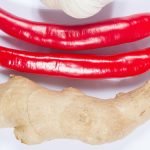If the prospect of inviting diabetes, heart disease, and obesity into your life doesn’t discourage you from eating that Philly cheese steak, perhaps this will. A new study has found a dramatic rise in the likelihood of getting pancreatic cancer among those who indulge in high-fat foods. And pancreatic cancer is a particularly nasty disease, with median survival rates of three to five months and five-year survival rates dipping below five percent.
The study, out of the National Cancer Institute, enrolled more than 500,000 subjects — 308,736 men and 216,737 women — who were followed for six years. At the conclusion of the study, the men who ate the most fat from meat increased their risk of pancreatic cancer by 53 percent, while the most carnivorous women had a 23 percent increase. The results also showed that those who ate the greatest amount of saturated fat from all sources, including dairy, had a 36 percent increased risk compared to those who consumed the least amount.
According to study author Rachael Z. Stolzenberg-Solomon, “We observed positive associations between pancreatic cancer and intakes of total, saturated, and monounsaturated fat overall, particularly from red meat and dairy food sources. We did not observe any consistent association with polyunsaturated fat or fat from plant food sources. Altogether, these results suggest a role for animal fat in pancreatic carcinogenesis.” In other words, olive oil won’t hurt your pancreas; meat and dairy probably will.
Most people don’t worry about the pancreas on a daily basis. If you don’t know exactly where the pancreas is or what it does any more than you know the location of Nuku’alofa, Tonga — the pancreas lies behind the stomach, stretching about six inches across. It plays a key role in digestion, secreting digestive enzymes, and in insulin regulation and production. Eating a high-sugar, processed food diet can essentially burn out the pancreas, resulting in diabetes. Not surprisingly, diabetics are particularly at risk for pancreatic cancer, especially diabetics who load up on meat.
Pancreatic cancer is the fourth leading cause of cancer death in the US, killing about 35,000 Americans annually. Other risk factors include smoking — which ups the risk by as much as 300 percent — low vegetable intake, chemical exposures, obesity, and as we have just learned, a diet high in animal fats. Apparently, being overweight or obese early in adulthood ups the risk even more, and obese individuals have a reduced chance of surviving the disease — which paints a dismal picture given the odds under the best of circumstances. It doesn’t help that the disease tends to be symptom-free until the late stages, when the victim may notice abdominal pain, weight loss, or jaundice.
As evidence accumulates that this awful disease is largely preventable by altering lifestyle, modern medicine, on the other hand, makes very little headway in treatment. In spite of occasional flurries of excitement around some supposed new miracle breakthrough, the survival rates haven’t increased much over the years and, in fact, almost twice as many people die of pancreatic cancer annually now as did in 1950.
In short, pancreatic cancer is far easier to prevent (or at the least, dramatically cut your odds of getting it) than to cure, and a good place to begin would be to cut way back on meat and dairy consumption. If you’ve been nutritionally dissolute in the past, all isn’t lost. Your body has a remarkable ability to heal itself when given a chance. Regular detoxing, of course, is essential.
:hc












I am wondering if this information is accurate in regards to animal products that come from animals raised properly on pastures that are green with natural grasses for the cows to eat. Animals that aren’t stressed by their environment need no antibiotics or other pharmaceutical products that do, in fact, poison our environment.
These studies always tend to overlook the consumption of the other red meat and source of dairy products, grass fed cows, thus condemning a very healthy source of protein and confusing the American public.
I recommend Sally Fallon's
I recommend Sally Fallon’s book “Nourishing Traditions”. People in the 1920’s weren’t dying from heart attacks. It’s the processed foods and polyunsaturated oils that are bad.
I agree that there are meat and dairy sources that are grass fed, “organic” but given the fact that dairy is probably the most mucus forming food why would you want to do that to your body. Almond, hemp and coconut milks are very delicious when eaten with buckwheat sprouts as a cereal or used in smoothies. But if you must have meat and dairy, by all means choose the grass fed pasture raised product. I think it’s important that we just do more right things than wrong to get started. Where ever you are now that’s perfect for you. Enjoy your meals with gratitude.